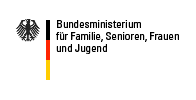Aspects
Aspects Agriculture
- Representation: Agricultural businesses are predominantly owned by men, while women are mostly engaged family members helping in the business. Therefore, most women working in agriculture have only derived social security rights, which make them directly dependant on the farm owners. GM supports independent social insurance for all persons working in agriculture.
- Priorities: The European Agricultural Guidance and Guarantee Fund (EAGGF) gives preference to male connoted sectors such as livestock rearing, road building and direct subsidies for the technical modernisation of businesses. It tends to neglect small businesses and the subsistence sector; these tend rather to be female connoted. With Gender Budgeting in the promotion of the structural funs, it can be guaranteed that there is a fairer distribution in terms of gender, taking account of different integration of women and men in agricultural work sectors.
- Compatibility: Rural structures with very little room for child-care and mobility problems go against the compatibility of work and family. As most women working in agriculture work part-time, new compatibility models are needed to enable the securing of an independent livelihood beside agriculture. New employment models which are fairer in terms of gender can be initiated within the framework of the agrarian reform, bringing better compatibility of work and family for parents.
- Life forms: Young farm workers, compared with men in other occupations, have an over-proportional tendency to be single, since it is harder to find potential partners due to the nature of agricultural work. GM thus also involves improving social contacts for farm workers.
- Law: Some statutory regulations apply to agriculture which do not harmonise with civil law. In some federal states (Länder) the law of inheritance is governed by the so-called Farms Ordinance. This law of inheritance, which places the succession of children and grandchildren before that of the spouse, tends to disadvantage predominantly wives because of their different property rights in agriculture.
Further reading:
Bundesministerium für Verbraucherschutz, Ernährung und Landwirtschaft (Hrsg.): Gender-Mainstreaming. Ein neuer Ansatz in der Regionalentwicklung. Düsseldorf 2004
Europäische Kommission: Agriculture: The spotlight on women. Luxemburg 2002
Europäische Kommission: Agriculture: The spotlight on women. Luxemburg 2002
erstellt von Administrator
—
zuletzt verändert:
02.01.2010 20:08





